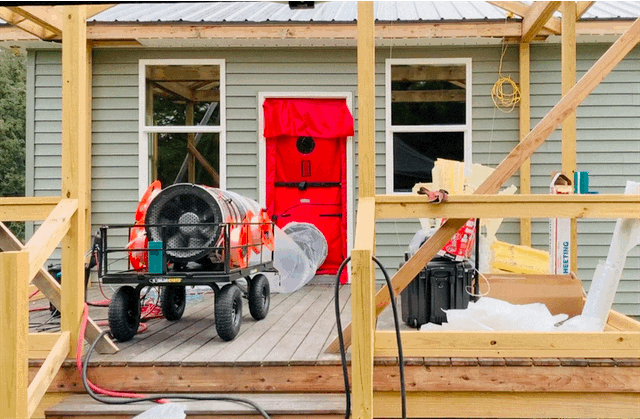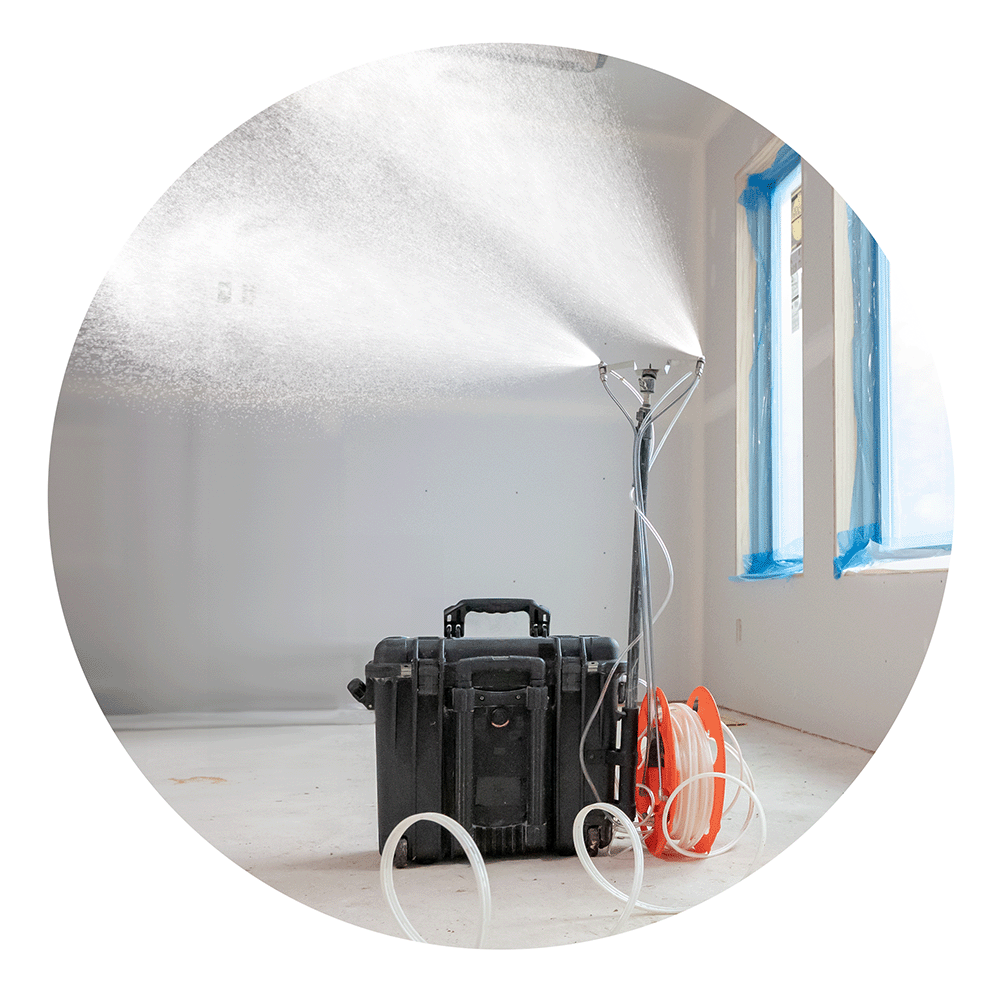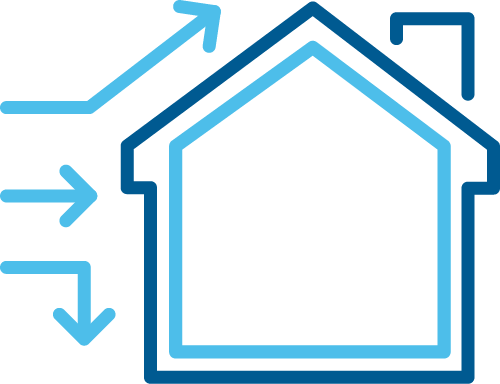Residential and Commercial Property Air Sealing in Virginia
About Aeroseal Virginia
At Aeroseal Virginia, we specialize in comprehensive air sealing solutions for both ductwork and building envelopes. Our automated technology increases energy efficiency, improves indoor air quality, and cuts energy costs for residential and commercial properties across Virginia.
Whether you're working on projects in Richmond, Virginia Beach, Arlington, or throughout the state, our certified professionals use proven Aeroseal technology to seal air leaks in HVAC systems and building envelopes, ensuring long-lasting results that meet energy codes and performance standards.
Air Sealing Service Areas in Virginia
We proudly offer our services by partnering with builders in many areas throughout Virginia, providing air sealing solutions that meet the strictest energy and building performance standards.
Whether you’re working in Richmond, Virginia Beach, Arlington, or any other part of VA, our expert team ensures airtight HVAC systems and building envelopes. We guarantee that your air sealing goals will be met, backed by our Verified Seal Report, which provides real-time data and a post-seal certification to ensure compliance with energy codes and long-lasting results.

Richmond | Virginia Beach | Arlington | Norfolk | Chesapeake | Roanoke | Alexandria | Newport News | Hampton | Lynchburg | Fredericksburg | Fairfax
Wherever your next VA project is located, Aeroseal Virginia is here to ensure your builds are energy efficient and code compliant.
Contact us online to schedule a consultation with one of our professional air sealing contractors.
How Aeroseal’s AeroBarrier™ Seals Air Leaks
AeroBarrier provides an advanced, measurable air-sealing solution that pressurizes the building interior and releases a sealant mist that automatically locates and seals air leaks and cracks them in real time, ensuring precision, improved building and home energy efficiency, indoor comfort, and air quality.

Why Choose AeroBarrier
Virginia builders are prioritizing sustainable construction practices for several compelling reasons.
Achieve Virginia’s Building Code Standards with Confidence
Virginia adopted the 2021 IECC with state-specific amendments on January 18, 2024. For new residential construction, the air leakage standard is set at 5 ACH50, ensuring homes meet efficiency requirements. Additionally, Virginia allows general contractors to conduct air leakage testing, simplifying compliance for builders while maintaining code adherence.
AeroBarrier’s precision air sealing simplifies compliance with these rigorous standards, providing builders with a reliable way to pinpoint leaks and seal them, passing inspections on the first try.
By ensuring each building meets these air leakage requirements, AeroBarrier helps Virginia builders keep projects on schedule and in line with state efficiency goals, contributing to more sustainable, energy-efficient homes across the Old Dominion.
Ensure Year-Round Comfort for Virginia Homeowners
Virginia’s diverse climate presents unique challenges, from the humid summers of Tidewater and the Chesapeake Bay to the cooler, brisk winters of the Blue Ridge Mountains. Central Virginia sees its share of sweltering heat, while Northern Virginia can experience icy cold fronts that test a home’s comfort and efficiency. AeroBarrier’s precision sealing ensures indoor temperatures stay consistent, keeping cool air inside during the muggy summer months and blocking drafts during sudden winter chills. By creating a well-sealed building envelope, AeroBarrier helps Virginia builders deliver homes that stay comfortable year-round—offering energy savings and reliability in the face of Virginia’s varied and unpredictable weather.
Creating Healthier Indoor Environments for Virginia Homes
Virginia’s varied climate, from the humid coastal air of Tidewater to the cool breezes of the Blue Ridge Mountains, can make maintaining indoor air quality a challenge. Seasonal pollen from trees like pine, oak, and birch, especially during spring in Central Virginia, adds to the strain. AeroBarrier’s air sealing minimizes the entry of outdoor dust, allergens, and pollutants, creating cleaner, healthier living spaces. By sealing gaps that let in contaminants, AeroBarrier helps Virginia builders deliver homes that offer a breath of fresh air year-round, from pollen season to the damp, humid days of summer.
Additional Benefits of AeroBarrier for Virginia Builders

Superior Energy Efficiency:
AeroBarrier’s air-tight sealing cuts down on energy waste, reducing costs for homeowners and supporting Virginia’s energy-saving goals. Builders can showcase reduced energy consumption and greater heating and cooling cost savings as key features.

Environmental Sustainability:
AeroBarrier promotes sustainability by reducing carbon footprint through improved energy efficiency. Builders can highlight their commitment to eco-friendly practices and appeal to environmentally conscious buyers.

Differentiation and Competitive Advantage:
By incorporating AeroBarrier, builders can differentiate themselves in the Virginia market, showcasing their commitment to cutting-edge technologies, energy efficiency, and superior construction practices.

Enhanced Building Durability:
Properly sealed buildings using AeroBarrier are less prone to moisture-related issues such as mold, mildew, and structural damage, leading to increased durability and reduced maintenance costs—even in Virginia’s humid coastal regions and cooler mountain climates.

Positive Customer Experience:
Providing a home with superior energy efficiency and improved comfort creates a positive experience for homeowners, enhancing their satisfaction with the builder's product.






